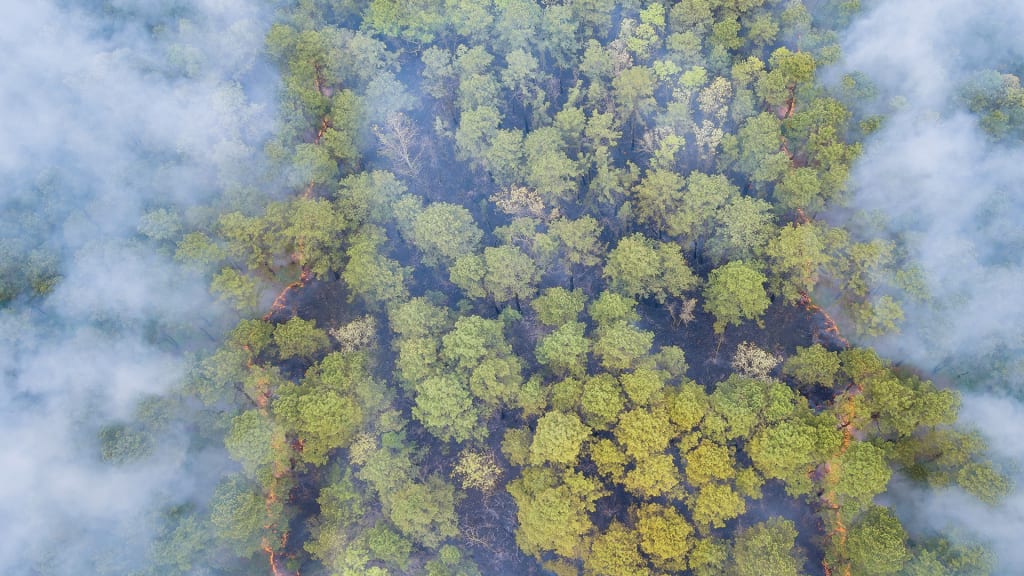
Turkey, situated at the crossroads of Europe and Asia, is a country with a rich cultural heritage, diverse ecosystems, and a rapidly growing economy. However, like many other countries around the world, Turkey faces significant environmental challenges that threaten its sustainable development. In recent years, the Turkish government has taken steps to address these challenges and promote sustainability, but much work remains to be done.
Environmental Challenges in Turkey
One of the biggest environmental challenges in Turkey is air pollution. According to the World Health Organization (WHO), 16 of the 20 most polluted cities in Europe are located in Turkey. The primary sources of air pollution in Turkey are industrial emissions, transportation, and heating systems. The high levels of air pollution have serious health consequences for the Turkish people, especially for those who live in urban areas.
Another major environmental challenge in Turkey is water scarcity. Turkey is a semi-arid country, and its water resources are limited. In recent years, climate change and increasing demand for water have further exacerbated the water scarcity problem. The Turkish government has implemented various policies and initiatives to increase water efficiency and conserve water resources, but more needs to be done to address this issue.
Deforestation and land degradation are also major environmental challenges in Turkey. Turkey has one of the highest rates of deforestation in Europe, and its forests are under threat from logging, agriculture, and urbanization. Land degradation, including erosion and desertification, is also a problem, particularly in the southeast region of the country.
Progress towards Sustainability in Turkey
Despite these environmental challenges, Turkey has made progress towards sustainability in recent years. In 2016, Turkey ratified the Paris Agreement on climate change, committing to reducing its greenhouse gas emissions by 21% by 2030. The government has also implemented various policies and initiatives to promote renewable energy, energy efficiency, and sustainable transport. For example, in 2017, Turkey launched the National Energy Efficiency Action Plan, which aims to reduce energy consumption by 14% by 2023.
Turkey has also made progress in addressing water scarcity. In 2019, the government launched the National Water Management Plan, which aims to increase water efficiency and conservation, improve infrastructure, and promote sustainable water use. The plan includes measures such as the construction of new dams and irrigation systems, as well as the promotion of water-saving technologies.
In addition, Turkey has implemented various initiatives to promote sustainable agriculture and protect its forests. For example, in 2019, the government launched the Forestation Project, which aims to plant 11 million trees in each of Turkey's 81 provinces. The project has been widely praised as a positive step towards reforestation and combating deforestation in the country.
Challenges to Achieving Sustainability in Turkey
Despite these positive steps, there are still significant challenges to achieving sustainability in Turkey. One of the biggest challenges is the lack of public awareness and engagement on environmental issues. Many Turkish people are not aware of the environmental challenges facing the country and do not prioritize sustainability in their daily lives. This lack of awareness and engagement makes it difficult to implement effective environmental policies and initiatives.
Another challenge is the role of industry in the Turkish economy. The industrial sector is a significant contributor to Turkey's economy, but it is also a major source of pollution and environmental degradation. The government needs to balance the economic benefits of industrial growth with the need to protect the environment and promote sustainability.
Conclusion
Sustainability is a critical issue for Turkey's future development, and the country faces significant challenges in achieving sustainable development. However, Turkey has also made progress in recent years towards sustainability, through the implementation of policies and initiatives aimed at reducing pollution, conserving water resources, and promoting sustainable agriculture and forestry. To achieve long-term sustainability, Turkey needs to address the challenges of public
About the Creator
Emre Erkek
Abdullah Gul University
AGU-RAS (2022-2023)
AGU-UniBiotech (2022-2023)





Comments
There are no comments for this story
Be the first to respond and start the conversation.